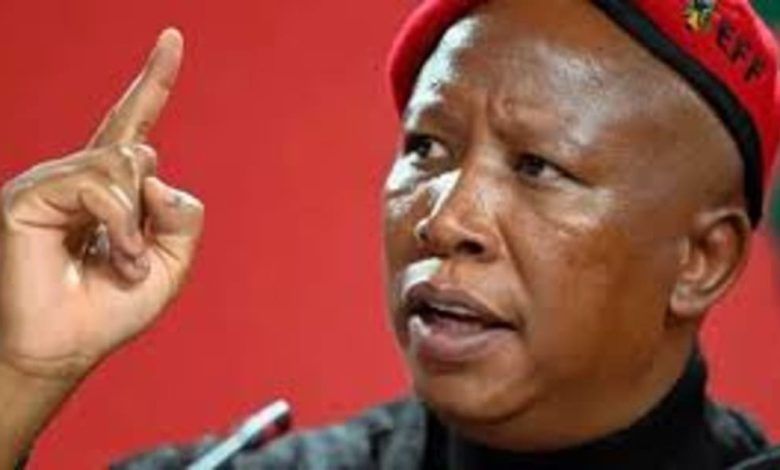UK Denies Entry to South African Opposition Leader Julius Malema Over Controversial Remarks

The United Kingdom has barred entry to Julius Malema, a prominent and contentious South African opposition leader, citing concerns over his public statements and political stance.
The UK Home Office described Malema as “non-conducive to the public good” and deemed it “undesirable” to grant him a visa.
According to a letter released by Malema’s Economic Freedom Fighters (EFF) party, UK officials pointed to his outspoken support for Hamas, including remarks he made after the October 7 attacks, where he pledged that his party would arm the Palestinian group if it came to power.
The Home Office also referenced statements attributed to Malema that allegedly called for or condoned violence against white South Africans, which heavily influenced the visa rejection.
The EFF vehemently condemned the UK’s decision as “cowardice” and accused British authorities of distorting Malema’s message.
The party argued that his comments reflected deep-rooted frustrations among economically marginalized Black South Africans under the lingering legacy of white minority rule, warning that these tensions could fuel social unrest if left unaddressed.
Malema and the EFF vowed to stand by their “revolutionary beliefs,” refusing to “trade them for a visa.” The party reaffirmed its commitment to African liberation and solidarity with oppressed peoples worldwide, particularly Palestinians. “The UK and its allies can keep their visas; we will keep our Africa and our commitment to justice,” the EFF declared.
The controversy gained international attention after former US President Donald Trump showcased a video of Malema during South African President Cyril Ramaphosa’s visit to the White House.
In the footage, Malema is heard singing the contentious protest songs “Shoot to Kill” and “Kill the Boer,” which Trump claimed incited violence against South Africa’s Afrikaner minority.
However, South Africa’s Supreme Court of Appeal ruled that these songs do not constitute hate speech but are a symbolic, provocative form of political expression aimed at addressing historic land and economic injustices.
The court emphasized that a “reasonably well-informed person” would not interpret the lyrics as a literal call for violence.





